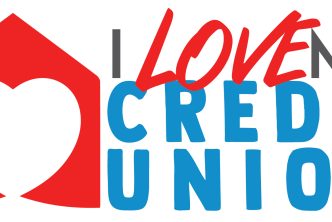The following Op-Ed letter from Patrick La Pine, president/CEO of the LSCU, was published last week on Al.com, sending a message to ICBA regarding its negative comments on credit union purchases of banks.
Recently, the Independent Community Bankers of America (ICBA) has tried to create a stir about credit unions purchasing banks. What is so surprising about this effort is that this group is working against the best interest of their own bank members and the communities in which they operate. In the few scenarios of credit unions purchasing banks, the banks are not victims – it’s a win/win for the institution, their customers and the communities they operate in.
Local, main street financial institutions are vital to America’s communities and as they diminish, credit unions are filling this gap. In most cases, banks or their representatives are coming directly to credit unions or their representatives to initiate these acquisitions. The reason why? Larger regional and national banks do not want them and/or would close branches and layoff their employees.
In addition, while the bank shareholders get cash (unlike the stock they’d receive were the bank purchased by another bank), the credit union gains an efficient way of expanding service to a new area, buying a mature small business lending portfolio and investing more into an existing service area. When a credit union buys a bank there are taxes paid on the premium the credit union pays for the institution. Credit unions have also typically retained bank employees rather than laying off staff which has been extremely important to staff, customers and their communities.
For former bank customers, now credit union members “The benefit has been placed squarely on the shoulders of the consumer,” writes Chris Russell, former President, Oculina Bank, which was recently purchased by IBMSECU in Delray Beach, Fla., “benefits in the form of higher deposit rates, lower loan rates and more product offerings and choices.”
Bobbie Samac, former V.P Bank of the Pine Hill, recently purchased by Family Security Credit Union, wrote “After much discussion, the bank management felt this was the best opportunity for the bank’s shareholders, the employees, and the community. All employees were invited to apply for employment and all who applied were given a job. FSCU offered many advantages that had been unavailable previously. We were grandfathered in on vacation times and sick days (and benefits). The raises and bonuses we have received here are a boost to morale.”
Credit unions are not and never will be the same as banks. While banks continue to seek means of enriching their shareholders, credit unions continue to serve their members’ bottom line through fewer and reduced fees and lower interest rates. That’s the credit union difference!
When it’s all said and done, the ICBA is trying to blame credit unions for their own industry failing smaller institutions. The consumers who were formerly customers of a bank get a raise—in the form of lower loan rates, higher deposit rates and an overall better experience. Credit unions take the concept of membership very seriously, and we look forward to the opportunity to prove to folks what we’ve known all along: credit unions are the BEST choice for America’s consumers.
See the Op-Ed here.





